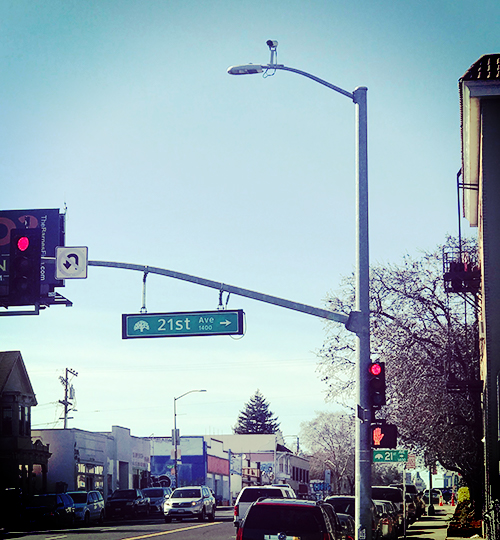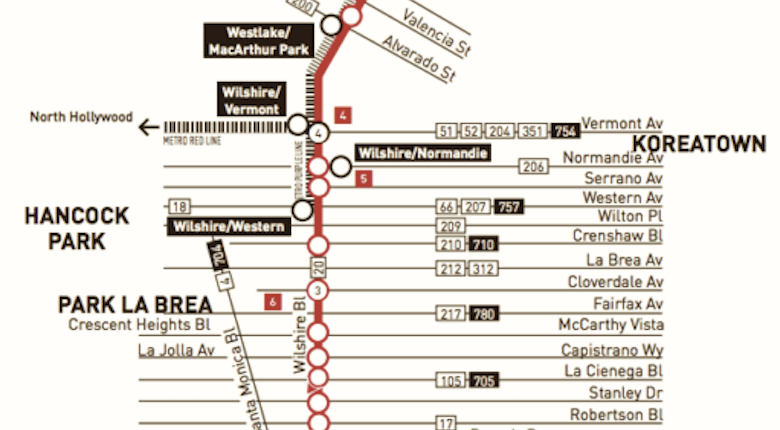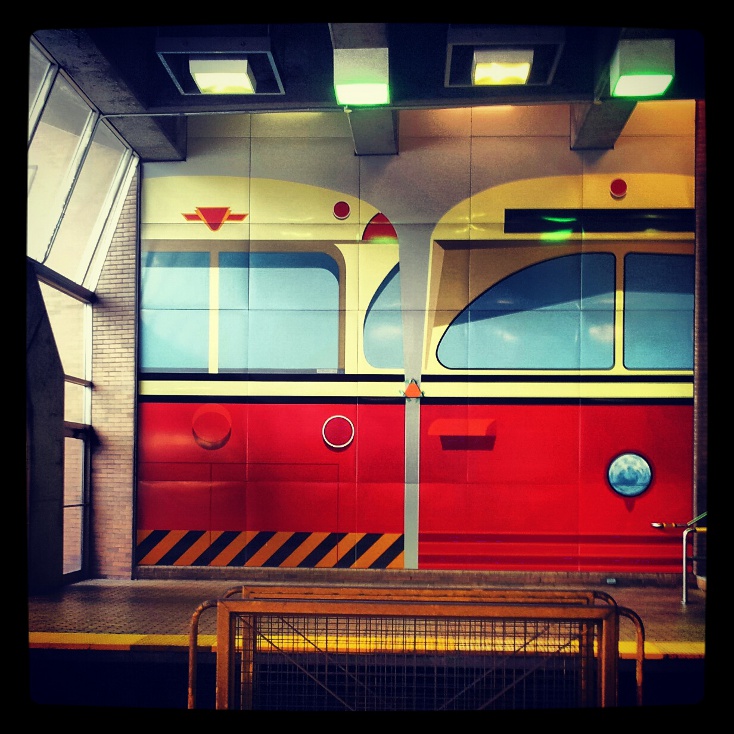by Anonymous
Published on July 29, 2019
Visiting Palestine is no easy feat. First, you have to explain what you mean by Palestine to those who do not understand your history or the acridity of the word Israel in your mouth. “No, Israel isn’t home.”
Second is the long flight, harder for my parents than their travel-giddy children. My siblings and I keep a running tally of throwing up during the plane’s descent over the years. My sister has the weakest stomach—she’s winning by a mile.
Then there are the inevitable and routine security delays. It starts with a line, and then you get stopped. A parent gets whisked away. More waiting. After hours or eternities, said parent will re-emerge and you’ll continue on your way.
This is my usual experience at Israeli airports and checkpoints, though my non-citizen mother is typically the one to get whisked. She always returns pale and, in retrospect, visibly shaken. This time, however, I got whisked, too.
It was the summer of 2008. Every two years, my nuclear family makes the airborne pilgrimage to our village in Historic Palestine (alternatively called Israel), 100 kilometers north of Tel Aviv. Here, and in neighboring villages, dozens—if not hundreds—of my relatives are clustered, packed into homes of cinder block and stone veneer. These sprout up like mushrooms, often on top of each other, every wedding season. Equipped with an abundance of gifts and calculated modest-yet-lightweight clothing, we set off on our familiar trans-continental route.
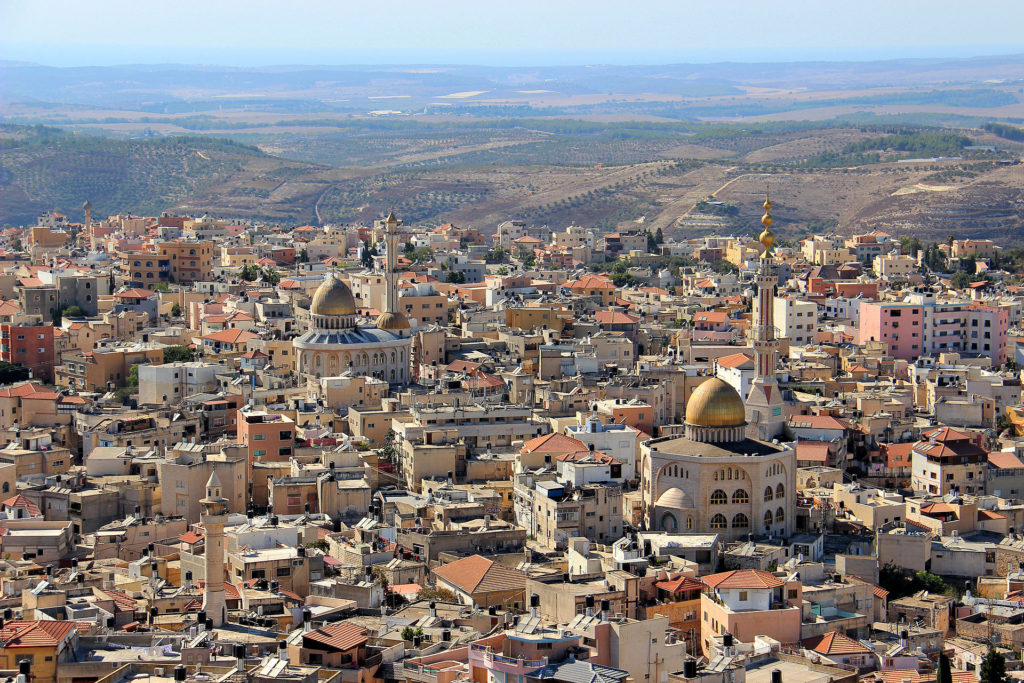
Upon landing in Tel Aviv, my family and I are escorted from customs to an impractically small room of Ben Gurion airport. Clearly this space was not meant for family-sized threats like us. We are seated in a row of chairs with our backs against the wall, evoking the layout of a doctor’s office. Accordingly, I prepare myself for examination. To the left there is a glass wall, separating us from the other travelers. It reminds me of the San Francisco Zoo.
Two men, appearing equally annoyed and amused, begin to question my parents. First they aim their queries at my mother, though it quickly becomes apparent that only my father understands their Hebrew. To me, the incomprehensibility of their speech only adds to the frustration of this senseless delay. Why can’t we just leave? Uncles, aunts, and cousins are waiting with bursting figs and homemade ma’amoul just a taxi ride away.
Given past experiences with Israeli officers, I presume their questions center around my mother’s “suspect” presence in the country. Everywhere we go, my mother’s legal status (or rather, lack thereof) garners the unwanted attention of Israeli gatekeepers. She is part of a dangerous population.
Luckily, reared in Israeli systems, my father knows how to placate state officials whenever they pull us aside. In unaccented Hebrew, he is able to deflect their hostilities without his “Arab-ness” getting too far in the way. Because of this, we defer to him whenever an institutional interaction impedes our path.
As an Israeli citizen, my father enjoys privileges my mother cannot. For one, he can reside and work in Israel beyond our temporary visits every few years. My paternal family managed to relocate to another village following the Nakba, and were eventually incorporated into the modern Israeli State. Though they are Palestinian citizens of Israel, they are not considered nationals. Denied vital social and economic resources, they are discriminated against both in practice and law. As a daughter of this patrilineage, I am an Israeli citizen too. For me, it is an ironic label, a false symbol of national inclusion.
Although married to a citizen, my mother cannot be; family reunification law doesn’t hold if you’re Palestinian. My maternal family met a different fate during Palestine’s fall. After their village al-Manshiyya was destroyed, the clan scattered to safety across southwest Asia, settling in pockets from Lebanon to Kuwait. For my mother, this was the first of multiple displacements, as she later had to flee the Gulf War. Our current displacement initiated by airport security follows the inertial force of a life in exile.
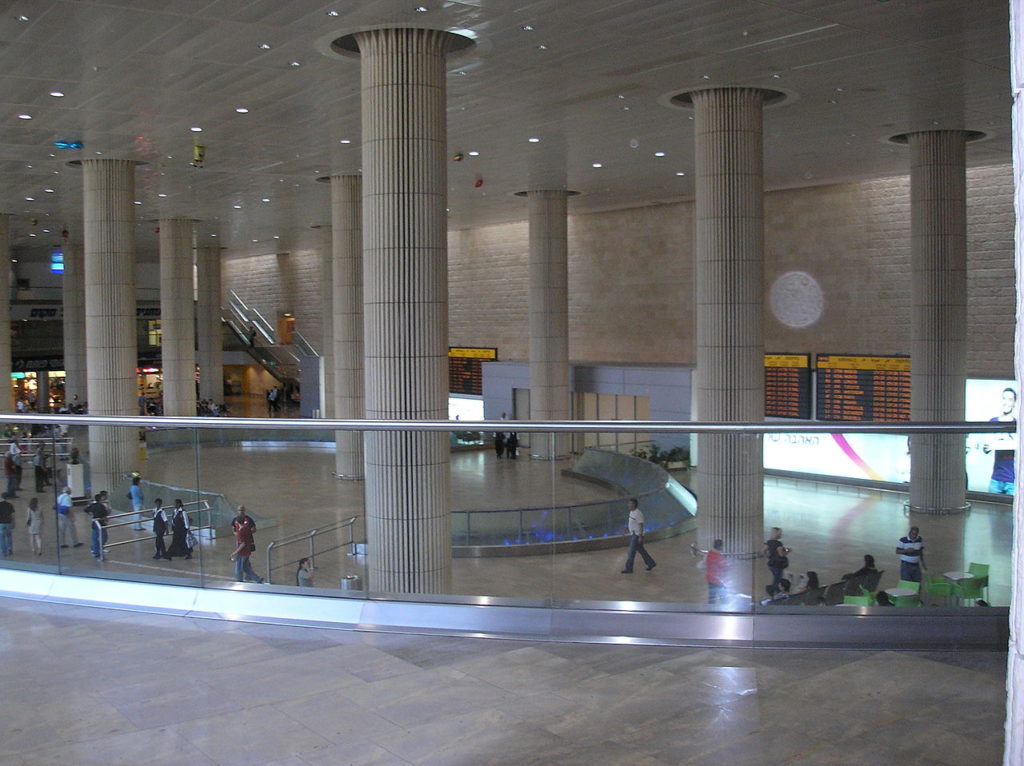
After a half hour of back-and-forth between my father and the officials, we are let go. A quick debriefing confirms my suspicions: “They were asking why mama was in line. It’s in the system! I kept telling them to check the damn system,” my father explains, exasperated. Apparently, the officers were alarmed by the presence of a Palestinian refugee in the “Israeli Citizen” immigration line.
We hurry to the luggage carousel and then exit, eager to escape the institutional atmosphere of Ben Gurion. To our dismay, we are hit with a wall of blazing, dry, cigarette-heavy heat. Dozens of taxi drivers honk and smoke with abandon, dodging the asthmatic Arabs in their midst.
My father hails a greying driver with boredom-glazed eyes. In perfect Hebrew, he asks for a ride to Afula, a city located a few kilometers north of our village. He knows that taxi drivers won’t go to the villages. The driver grunts in agreement, chucking our suitcases—also with abandon—into the back.
After an hour or two of intermittent dozing, I jerk awake to a heated tone. The driver has pulled over and is arguing with my father—a vision of triumph in the passenger seat! I look out the window and see that the curves in the road have finally become familiar. We are close. The ruse is up.
More back-and-forth and the driver is pacified. He proceeds on our route, albeit a couple hundred shekels richer. “Kam dafaeat leh? [How much did you pay him]” my mother groans from the back. My father shrugs in response, a silent refrain of “Shoo nisawee? [What can we do?]”
Contented, I settle back in my seat. We’ve surpassed the last hurdle in our routine of delays.
Works Cited
- Abourahme, Nasser. 2011. “Spatial Collisions and Discordant Temporalities: Everyday Life between Camp and Checkpoint.” International Journal if Urban and Regional Research 35(2), 453-461.
- Berda, Yael. 2013. “Managing Dangerous Populations: Colonial Legacies of Security and Surveillance.” Sociological Forum 28(3), 627-630.
- Davis, Uri. 1995. “Jinsiyya Versus Muwatana: The Question of Citizenship and the State in the Middle East: The Cases of Israel, Jordan, and Palestine.” Arab Studies Quarterly 17(1/2), 19-50.
- Pinson, Halleli. 2008. “The Excluded Citizenship Identity: Palestinian/Arab Israeli Young People Negotiating Their Political Identities.” British Journal of Sociology of Education 29(2), 201–212.
- Sayigh, Yezid. 1987. “The Politics of Palestinian Exile.” Third World Quarterly 9(1), 28-66.
- Shalhoub-Kevorkian, Nadera. 2015. “Necropolitical Debris: The Dichotomy of Life and Death.” State Crime Journal 4(1), 34-51.
***
